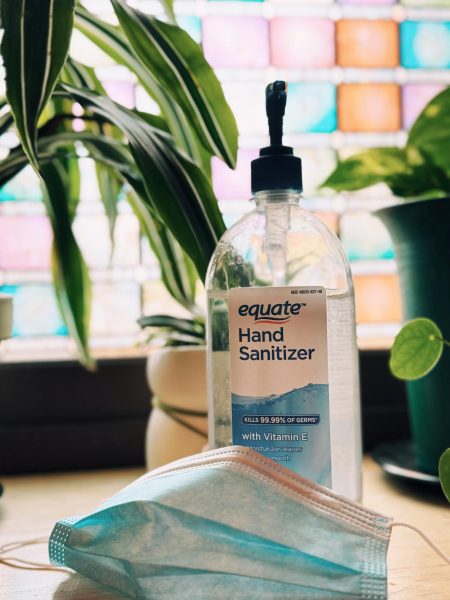What Does it Mean to Have an Opinion?
April 4, 2022
Something I’ve never understood about myself is my seemingly paradoxical personality. I’m shy, introverted, cautious, and yet manage to be a loudmouth. From new albums to elections, my friends often ask my opinion because they know how animated my responses can become. (If you haven’t heard me monologue on our podcast, check that out for an audio sample of what I’m referencing here. I’d recommend a Taylor Swift episode.) If I were to guess, I’ve garnered the ear of my friends because I truly have strong opinions, but this raises the question: what does it mean to have an opinion?
For an opinion to be more than a regurgitated talk track, you must back up your thoughts. For example, I hate pineapple on pizza. It’s a hill I’ll die on, alright? It’s disgusting. Pineapple is sweet which doesn’t match the savory profile of pizza. The acidity of tomato sauce mingling with fruit juice makes me want to gag. Don’t get me started on the stringy texture, and I don’t mean the gooey cheese stringy-ness kind. Although I started by denouncing the validity of pineapple on pizza, I can explain why. The mismatched flavor profile and texture bother me. These are preferences that back up my opinion.
For better or worse, there’s more to life than pineapple on pizza. Pizza toppings pale in nuance compared to environmental crises, racial injustice, international affairs, and the list continues. However, the example shows how having an opinion is more than spewing out words to fill the space. There is a major distinction between simply having an opinion and having an informed opinion. No one is required to have evidence for an opinion, but an informed opinion worth consideration must be backed up. Preferences may be enough for pineapple on pizza, but heavier matters require reinforcement from research, true facts, and behavior.
I won’t lecture about media literacy. I won’t talk about fake news or fact checking. Instead, I’ll summarize: do the work for yourself. Period.
When it comes to developing an opinion, the most overlooked (and foundational) step is reflection: taking time to connect with your deeper self and examine the values close to your heart. Sometimes you’ll realize the opinions you project are to satisfy outward appearances and not actually systems of belief that you adhere to. You are allowed to listen and observe before jumping into the fray.
Being first to add your voice to the noise is not an accomplishment. I’d argue that it shows a lack of effort to understand nuance and underdeveloped critical thinking skills. Cutesy Instagram graphics have evolved from digestible information to performative band-aids used to mask our inability to educate ourselves and a reliance on others to do the work for us. The work lies in learning about the world beyond your personal sliver, connecting with others, experiencing life, and knowing yourself.
It’s simplistic to say it’s better to not have an opinion rather than spread misinformation. That is a misleading statement. There is a difference between having an opinion and sharing it with others. You aren’t obligated to share your opinion on every topic, but choosing not to educate yourself is an opinion of itself. It speaks of your internal values, whether you recognize them or not.
With that said, I’ll be the first to admit that it’s not easy. There are so many concerns in the world that you cannot possibly give the time, attention, and care that they deserve to each of them. You can’t hold all those issues. If I’m being honest, I cried on the phone to my dad the other night, saying how difficult it was to handle college in a pandemic during multiple international crises while searching for a post-grad job in a volatile economy. And these are only a few of the larger narratives in the world right now. My personal life has its own challenges that I am constantly developing my stance on too.
Of course, telling you what I believe comprises an opinion is an opinion of itself. Yes, I see the irony in that, but I challenge you to examine your own values. Pineapple on pizza doesn’t provide safety, belonging, or innovation, but there are other topics that do. Let’s practice defending our pizza preferences before we take on life beyond.
Claire Weltz is a Dakota Student Editor. She can be reached at [email protected].












